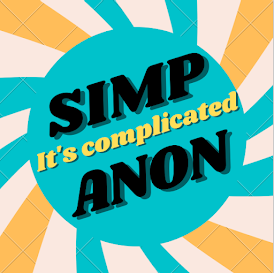In the last post, I turned my focus to the role of words in the construction of truth. This is Wordly Explorations, after all.
Words are what humanity uses to label, understand and share our experiences of the world, and to create explanatory stories that form our coherent view of the world. We use explanatory stories to make sense of the world (and one of those stories is that humans are progressing always toward
truth).
I explored how words - spoken, written, signed, symbolled - are 'representations', abstract symbolic units that 'stand in for' our experience of reality. As representations, our words are thus laden with our values, beliefs and ideas (shortened to 'subjective' for this post).
The conundrum is that, while we might agree in theory that they are subjective, in practice, we need to assume words are stable, neutral and objective in order to use them.
The human need for a stable sense of reality, which we construct with words, means that we need words to also be stable 'things'. So we just assume they are. We treat words as solid things, despite being confronted with numerous times when they are not (misunderstandings, disputes over meaning, propaganda, etc.).
To integrate this into the house construction metaphor for truth, I added handmade unfired clay bricks (solid but easily damaged) to represent the words with which we build our house. We use these handmade bricks to construct our floor of 'facts' and our walls of explanatory stories, and they hold up the roof and our sense of safety in truth.
When we have words for things and concepts for our experience of reality, we feel we know reality.
What does this mean for our understanding of the world? What does it mean for our idea of truth? And does it say anything about the word post-truth?












![quote boorstin text box: We think [advertising] has meant an increase of untruthfulness. In fact, it has meant a reshaping of our very concept of truth. Daniel Boorstin The Image: A Guide to Pseudo-Events in America, 1962](https://blogger.googleusercontent.com/img/b/R29vZ2xl/AVvXsEiTdN4FA9qWsBjwLxpMcxommKryH9d3ncRJveVN7b4RnYZL9uqtZhGjsT039OhFJUzNyp4Gsv49Ixl8EY948t9FqWxIsQllVb0o8DrzuiobLmXwWBYlsjOIGzqTGTUoJHBcFTVSKnPbIYHA/w320-h298/truth+8+boortsin+quote+UL.png)













